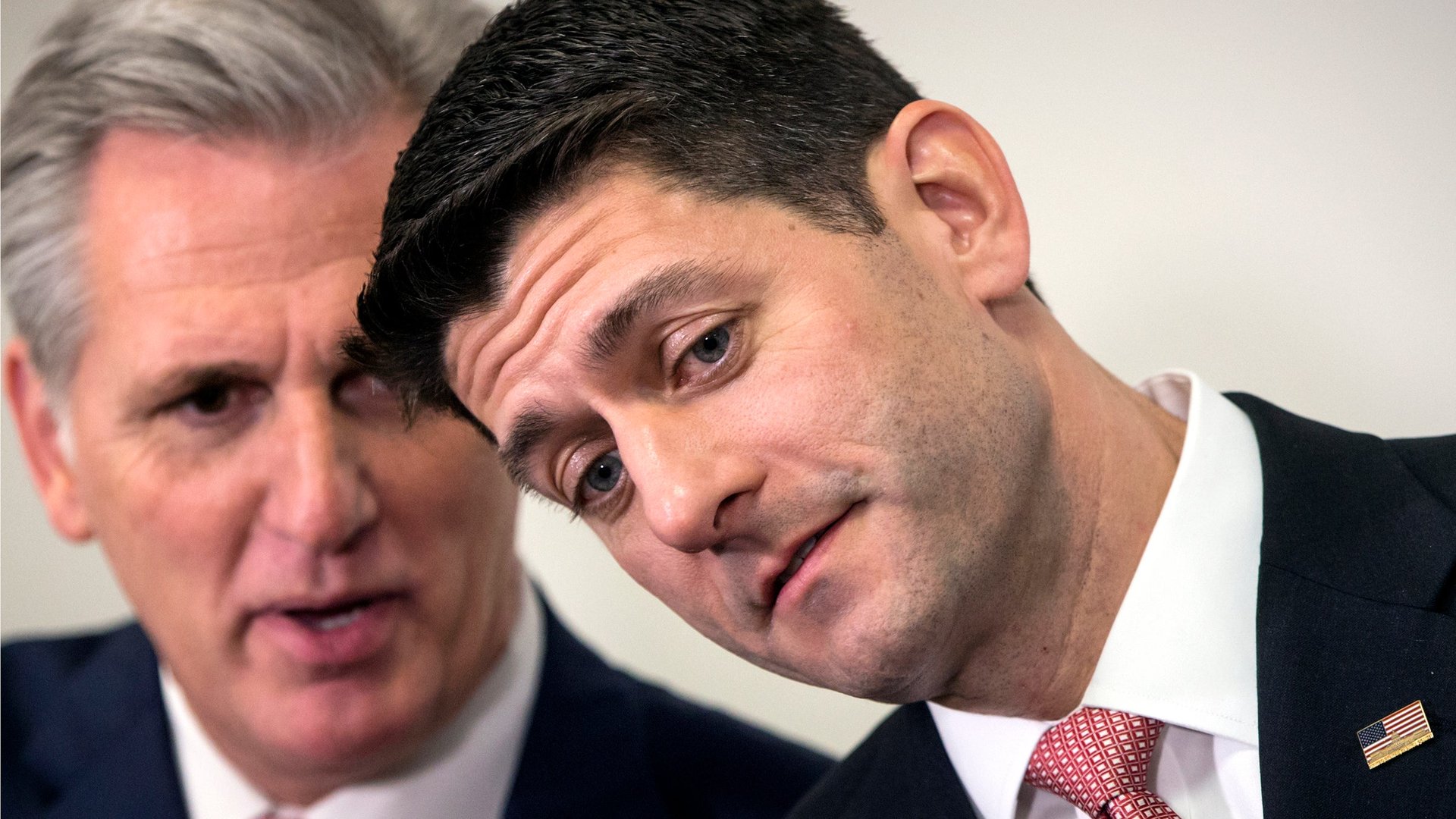Paul Ryan is defending conservatism against Donald Trump—and he’s losing
It should be obvious why Republican speaker of the House Paul Ryan is reluctant to embrace his party’s expected presidential nominee, Donald Trump.


It should be obvious why Republican speaker of the House Paul Ryan is reluctant to embrace his party’s expected presidential nominee, Donald Trump.
The answer is not civic duty, despite the laudatory coverage Ryan has received generated. The New York Times suggested that Ryan is reviving “a readiness to publicly challenge the leader of one’s own party” and advocating Congress as a check on presidential power.
But Ryan isn’t bringing back a “lost Washington art.” In fact, he was forced into this position because Donald Trump has single-handedly cracked the conservative movement’s monopoly on the Republican party.
Congress did not cede its prerogatives to the presidency out of a loss of courage or conviction, but because the two US political parties became polarized along ideological lines over the latter half of the 20th century. Before that process was completed (by the 2010 elections), bickering party factions had plenty of incentive to keep the president on the hot seat.
Why did some Republicans go after Nixon during Watergate? He was a relatively liberal Republican who created the EPA and took the dollar off the gold standard. Why did some Democrats go after LBJ during the Vietnam war? They saw his hawkish foreign policy as out of step with the party’s burgeoning progressive base.
Even in the days of the Iran-Contra scandal, you could find a Republican who was more liberal than a Democrat, and vice-versa. In today’s Congress, that’s just not possible.
Trump, though, is proving that he can be a Republican without pledging himself to American-style conservatism, as long as he wins over other factions within the party—particularly voters craving his particular brand of resentment-fueled white nationalism. His candidacy, orthogonal to the partisan spectrum, shows it’s possible again to jettison the conservative tenets of low taxes on the wealthy, free trade, opposition to minimum wages, and nationalized health care, and still be a Republican.
“Don’t forget—this is called the Republican Party. It’s not called the Conservative Party,” Trump said recently.
Ryan, on the other hand, is not so much a man as the conservative movement made flesh, raised on a diet of Ayn Rand and Frederich Hayek, apprenticed to Jack Kemp, and arriving onto the national stage with budgets packed full of cuts to government spending and the taxes of the wealthy. He knows that Trump does not share his agenda, and it doesn’t take much for him to say it.
This fight isn’t about Congressional independence at all. This is about ideology—and Trump’s startling lack thereof.